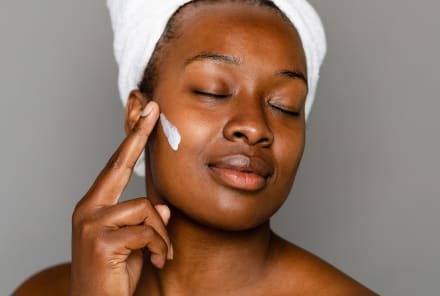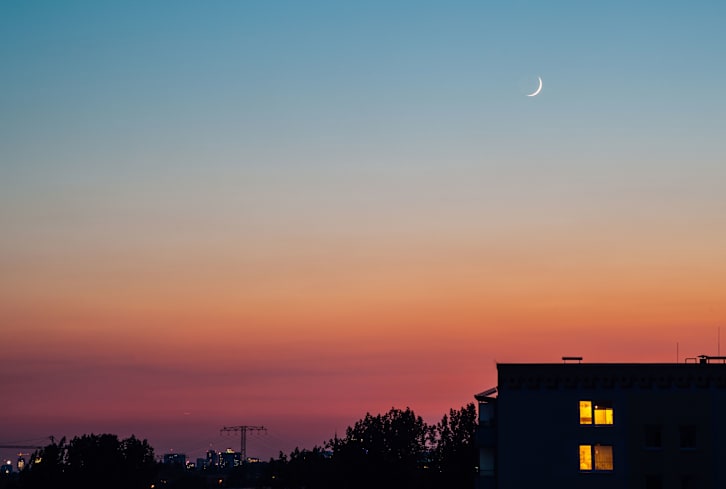Advertisement
John Friend Opens Up About The Sex Scandal That Shook The Yoga World

In a 2012 scandal that's been dubbed Anusaragate, John Friend—the creator of a wildly popular style and school of yoga called Anusara—was left estranged from much of the yoga world amid rumors of sex scandals, financial mismanagement, and inappropriate relationships with students.
Left to his own devices, the fallen guru spent his time in solitude with his mat, until fate led him to a small studio in Denver where owners (and sisters) Desi and Micah Springer invited him to heal and own up to his mistakes by encouraging him to take accountability for his actions.
As Friend, 55, gears up for the official launch of his new form of alignment-based yoga, Sridava, mbg asked him to open up about what he's learned since the scandal, and life after Anusara.
mbg: What did you do after the fall of Anusara in early 2012?
JF: I chose not to work or do any kind of revenue-generating job in the yoga world until that October. I was just practicing, studying, taking care of myself, and trying to learn from what happened.
Do you have regrets about the choices you made?
I feel the pain in my heart about the mistakes I made. It was never my intention to hurt anyone or myself. When those things occur, it's important to feel it and remember it, and that's how we change. I'm using the pain I feel to step forward into the future in a positive way. I'm certainly not going to repeat that path.
I take accountability for my own karma—I don't know how regret really helps. I want to remember what happened and then do things differently.
Did you feel like you had to go into hiding?
That time to self-reflect was critical. There was a response by the [Anusara] community to ostracize instead of work together. I didn't have much of a choice. They didn't want me to have any function in the organization, so I was isolated for some time.
It was my personal business, but some thought that I should be ostracized forever for this transgression. I am responsible for my mistakes, and my clear intention is to be utterly transparent and have integrity in my private relationships.
If people could be open to giving me a new chance, I would appreciate that. We have to have hope in each other that we can get better and make a positive shift.
Are you still in touch with anybody in the Anusara community?
At this point I am disassociated from the Anusara organization by our mutual choice. People make mistakes; so let's try to help each other—that's my big focus right now. As a yoga community, we haven't had the best behavior in the last couple of years. I believe that we can all improve, and that's what I'm trying to do with myself.
If you don't forgive, there is no change.
How did you start to take care of yourself physically after the scandal?
In the past, I thought I was being somewhat moderate with my habits. I had a beer on the weekends and used marijuana, but I never felt like I was partying every day. I was 50 pounds heavier than I am today. I was also working way too much, sometimes 100 hours a week, staying up past midnight on most nights on my computer. The imbalance in my life was more due to overworking than partying.
And when everything collapsed, I realized it wasn't sustainable. I had to take full ownership of the fact I had created that situation. It was my own doing. When you're not feeling well it definitely affects your behavior—you're not going to make good choices.
Do you have any larger take-aways from what you've learned?
I understand that I'm the one accountable for my own life. There's no one else to blame. I can see now that I had set up a dysfunctional organization. That was a giant wake-up call for me.
I'm a lot more discerning with my associations, and I focus on my own accountability in my behavior. I just stick more to myself. Before, I let people into my private life, and many of them—maybe because of my public image—never really said that they disagreed with anything they saw in my life or behavior.
Aside from self-reflection, what have you been up to?
After the scandal I began studying a routine (of postures) that Desi wrote called The Roots. It had so much power for transformation and health, and it totally revolutionized my approach to alignment. This new alignment system eventually become Sridaiva, a new type of yoga I am practicing.
In Sridaiva, the tailbone doesn't draw downward. You don't lengthen you spine by pulling the two ends of the spine apart. You line the spine up so that your connective tissue can pull the spine apart. There's a rooting through the pelvis down the legs and a rising in the spine to have the maximum opening of the body. That's not to say poses in modern postural yoga are wrong. We just focus more on the engagement on the back body. After 42 years of teaching yoga, that's a big change, in my view.
Where does the name Sridaiva, which means "divine destiny" in Sanskrit, come from?
For Desi and I, divine destiny refers to fate. Like when you run into someone on the street and that person happens to have a special gift or knowledge that's valuable for you. It seems like coincidence, but there is something really powerful in that.
It was an unbelievable, fated meeting with Desi. What were the chances at that time in my life after the fall of Anusara, when I'm open to a new path, this opportunity with Desi would just appear?
Would you say all of this happened for a reason?
The path I'm on now only happened because of a terrible scandal where I lost so much: my associations, my friendships, my lifestyle. All of it was gone. It was almost a near-death experience, and I finally woke up and realized I needed to be different.

This Common Ingredient Wreaks Havoc On The Gut, Study Shows
Gretchen Lidicker, M.S.

This Common Ingredient Wreaks Havoc On The Gut, Study Shows
Gretchen Lidicker, M.S.

This Common Ingredient Wreaks Havoc On The Gut, Study Shows
Gretchen Lidicker, M.S.

This Common Ingredient Wreaks Havoc On The Gut, Study Shows
Gretchen Lidicker, M.S.









